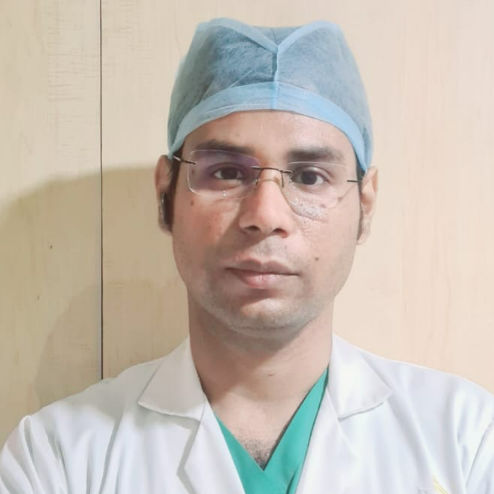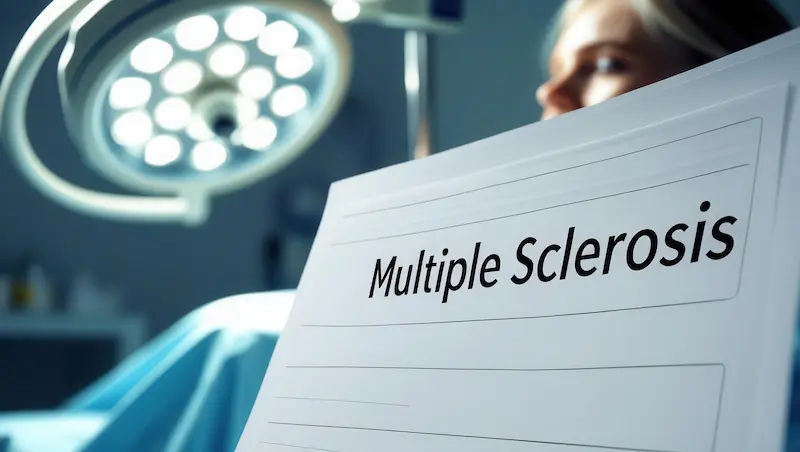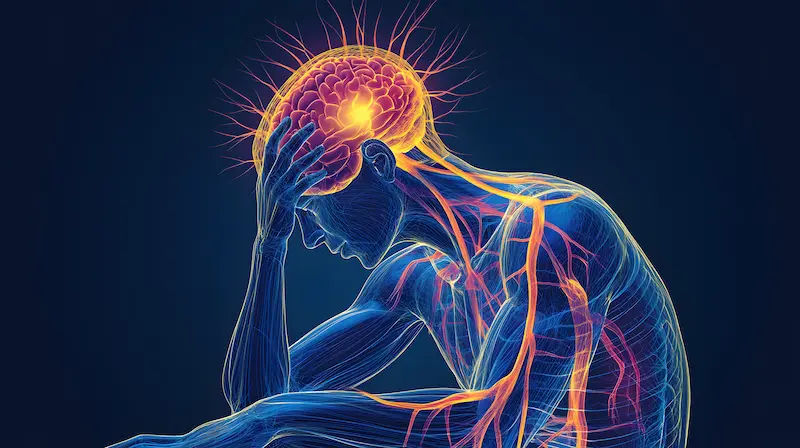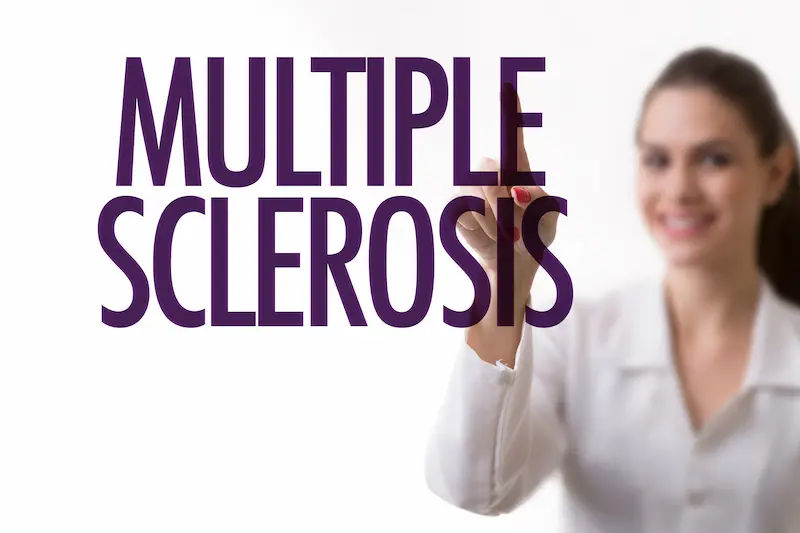Understanding Multiple Sclerosis and Its Aspects
Explore Multiple Sclerosis (MS), its symptoms, causes, diagnosis, and treatment options. Understand how this chronic condition affects the nervous system and impacts daily life.

Written by Dr. D Bhanu Prakash
Reviewed by Dr. Mohammed Kamran MBBS, FIDM
Last updated on 13th Jan, 2026

Introduction
Multiple sclerosis (MS) is a chronic condition that affects the central nervous system (brain and spinal cord). It occurs when the immune system mistakenly attacks the protective covering of nerve fibres, called myelin, leading to communication problems between the brain and the rest of the body. While MS can be challenging, understanding its symptoms, causes, and management strategies can help patients and their loved ones cope better.
What is Multiple Sclerosis?
MS is an autoimmune disease where the body’s immune system attacks its own nervous system. The damage to myelin disrupts nerve signals, leading to a wide range of symptoms that vary from person to person. Some people experience mild symptoms, while others may face more severe challenges.
Common Symptoms of MS
Since MS affects the nervous system, symptoms can vary widely. Some common signs include:
- Fatigue: Extreme tiredness that doesn’t improve with rest.
- Numbness or tingling: Often in the arms, legs, or face.
- Muscle weakness or stiffness: Difficulty in walking or coordination.
- Vision problems: Blurred vision, double vision, or even temporary vision loss.
- Balance and dizziness issues: Trouble walking steadily or feeling off-balance.
- Bladder and bowel problems: Frequent urination or constipation.
- Cognitive changes: Memory lapses, difficulty concentrating, or mood swings.
Symptoms may come and go (relapsing-remitting MS) or worsen over time (progressive MS). Early diagnosis and treatment can help manage symptoms effectively.
What Causes Multiple Sclerosis?
The exact cause of MS is still unknown, but researchers believe a combination of factors plays a role:
- Genetics: Having a family member with MS increases the risk slightly.
- Environmental factors: Low vitamin D levels, smoking, and certain infections (like Epstein-Barr virus) may contribute.
- Autoimmune response: The immune system mistakenly attacks healthy nerve cells.
While MS is not directly inherited, certain genetic and environmental factors increase susceptibility.
Consult Top Specialists for Personalised Tips
How Does MS Affect Daily Life?
Living with MS can be unpredictable, as symptoms can change over time. Some people continue to lead active lives with minimal disruptions, while others may need adjustments in work, mobility, or daily activities. Emotional well-being is also important, as stress and anxiety can worsen symptoms.
Managing Multiple Sclerosis
While there is no cure for MS, treatments and lifestyle changes can help manage symptoms and slow disease progression.
1. Medical Treatments
- Disease-modifying therapies (DMTs): These medications help reduce relapses and slow nerve damage.
- Symptom management: Medications for pain, muscle spasms, fatigue, and bladder issues.
- Physical therapy: Helps improve strength, balance, and mobility.
2. Lifestyle Adjustments
- Healthy diet: A balanced diet rich in omega-3 fatty acids, fruits, and vegetables supports nerve health.
- Regular exercise: Gentle activities like yoga, swimming, or walking can improve strength and mood.
- Stress management: Meditation, deep breathing, and counselling can help reduce stress-related flare-ups.
- Adequate rest: Fatigue is common, so proper sleep and pacing activities are essential.
3. Emotional Support
- Joining support groups or talking to a counsellor can help manage emotional challenges.
- Family and friends play a crucial role in providing encouragement and assistance.
When to See a Doctor?
If you or a loved one experience symptoms like unexplained numbness, vision problems, or persistent fatigue, consult a neurologist. Early diagnosis can help in better disease management.
If you suspect MS symptoms or need expert advice, you can schedule a consultation with a neurologist through Apollo 24|7. Early intervention can make a significant difference in managing MS effectively.
Conclusion
Multiple sclerosis is a lifelong condition, but with the right treatment and lifestyle changes, many people lead fulfilling lives. Staying informed, seeking medical support, and maintaining a positive outlook can help in managing MS effectively.
If you have concerns about MS symptoms, don’t hesitate to reach out to a healthcare professional. You’re not alone—help and support are available.
Would you like to book a consultation or learn more about MS management? Visit Apollo 24|7 today for expert guidance.
Consult Top neurologist
Consult Top Specialists for Personalised Tips

Dr. Aditendraditya Singh Bhati
Neurosurgeon
21 Years • MBBS(2004), DNB Neurosurgery(2014); MNAMS; Fellow Skull Base Endoscopy (Italy), Fellow Extended Skull Base ( Weill Cornell, USA), Fellow ZAP-X Radiosurgery. Member of American Association of Neurological Surgeons
Delhi
Apollo Hospitals Indraprastha, Delhi
(100+ Patients)

Dr. Ganeshgouda Majigoudra
Neurologist
10 Years • MBBS, MD ( GENERAL MEDICINE) DM (NEUROLOGY)
Bengaluru
Apollo Clinic, JP nagar, Bengaluru

Dr. E Prabhakar Sastry
General Physician/ Internal Medicine Specialist
40 Years • MD(Internal Medicine)
Manikonda Jagir
Apollo Clinic, Manikonda, Manikonda Jagir
(150+ Patients)

Dr Debnath Dwaipayan
Neurosurgeon
9 Years • MBBS, MS(Gen. Surgery), DrNB (Neurosurgery)
Delhi
Apollo Hospitals Indraprastha, Delhi

Dr S Selvin
Neurologist
10 Years • MBBS, MD, DM (Neurology), FINR fellowhsip in Interventional Neuro Radiology
Chennai
Apollo Speciality Hospitals Vanagaram, Chennai
Consult Top neurologist

Dr. Aditendraditya Singh Bhati
Neurosurgeon
21 Years • MBBS(2004), DNB Neurosurgery(2014); MNAMS; Fellow Skull Base Endoscopy (Italy), Fellow Extended Skull Base ( Weill Cornell, USA), Fellow ZAP-X Radiosurgery. Member of American Association of Neurological Surgeons
Delhi
Apollo Hospitals Indraprastha, Delhi
(100+ Patients)

Dr. Ganeshgouda Majigoudra
Neurologist
10 Years • MBBS, MD ( GENERAL MEDICINE) DM (NEUROLOGY)
Bengaluru
Apollo Clinic, JP nagar, Bengaluru

Dr. E Prabhakar Sastry
General Physician/ Internal Medicine Specialist
40 Years • MD(Internal Medicine)
Manikonda Jagir
Apollo Clinic, Manikonda, Manikonda Jagir
(150+ Patients)

Dr Debnath Dwaipayan
Neurosurgeon
9 Years • MBBS, MS(Gen. Surgery), DrNB (Neurosurgery)
Delhi
Apollo Hospitals Indraprastha, Delhi

Dr S Selvin
Neurologist
10 Years • MBBS, MD, DM (Neurology), FINR fellowhsip in Interventional Neuro Radiology
Chennai
Apollo Speciality Hospitals Vanagaram, Chennai




